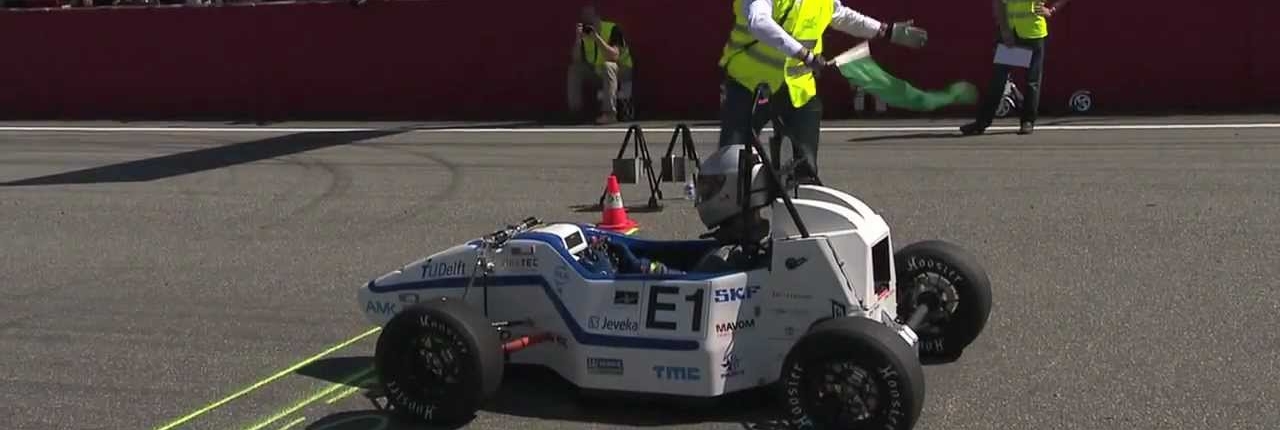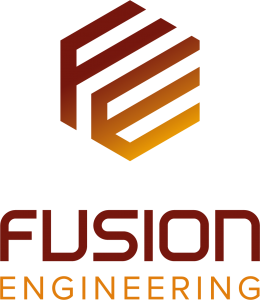The road to Fusion Engineering
An interview with Robert Crone – CEO of Fusion Engineering
“The best advice is to always keep in mind that you as a founder know your situation best.”
Having a startup can be quite a journey. Robert Crone started out with two other people to create what is now known as Fusion Engineering. In this interview, we dive into the excitement, obstacles, and things he learned while building the team.
You have a bachelor’s in aerospace engineering and a master’s in management of technology. Where did the inspiration to launch a start-up come from?
The idea of launching a start-up had appealed to me for a long time. When I started studying aerospace engineering I already planned to switch to a commercially oriented master to combine those skills and starting a technology-oriented business was at the back of my mind at the time, although it could have ended many different ways.
The next important step in my development was participating in the Formula Student competition. For that competition, you design, build, test, and race an electric race car with a team of 70 people. It is a great experience going through the entire development process from start to finish. The team in Delft had in many ways a professional way of tackling a complicated development process, assisted by alumni who shared lessons learned in previous years. Both the confidence as well as the first connections I needed to launch a start-up were a direct result of that year in Formula Student.
Through those connections, I learned about advances in flight control technology that can potentially have a big impact on the drone industry. So with the expectation that we would be able to create something of value we put our savings together and started figuring out how to turn this into a business.
TU Delft Racing team 2012
Fusion Engineering started as a different company, called Drones for Work. What was the initial goal for that start-up?
In the beginning of a start-up the main focus is developing and testing the business model. Initially, we thought, drones are currently flying cameras, what if we combine drones with robotics to perform physical labour? The technology we are developing allows for drones to fly near structures even in the turbulent winds there. This allows us to get close enough for any robotics to do their job. That is how we got to Drones for Work, drones to perform routine physical tasks.
What is the greatest tip you got when starting up this company?
The best advice is to always keep in mind that you as a founder know your situation best. There is so much startup advice available and I would definitely recommend reading a few startup books, talking to experts and joining an incubation program, but for every person you talk to you will get a different opinion. In the end you are the one that has to combine all the information and apply it to your specific context.
The new name and brand Fusion Engineering was the next step in the start-up’s journey. What lessons did you learn from that first period? And how do you use those in the Fusion Engineering we know today?
In a word, realism. If you look at the statistics, you must be extremely optimistic to attempt starting a business. Developing new technology is always harder, more expensive, and takes longer than you expect. Managing expectations both in the team and externally is key and I have been too optimistic many times. In the beginning this leads to an overstressed team, worrying about unrealistic deadlines. Later this can lead to disappointed customers and financiers.
So with Fusion Engineering we decided to focus on our specialty, software and flight control algorithms. At that time we had also discovered the limited availability of solutions on the flight control market and combined with the high growth of the drone industry we saw an opportunity.
The company grew from three to nine people in a short amount of time. Did that change your way of working and if so, how?
When starting out with three people at that time we still had to figure out everything. First, we had to figure out our value proposition and build a business plan around that. Then we had to figure out how to finance the development and build a team capable of executing this plan. This was a time when we did not pay ourselves any salaries and worked in our living rooms. These are usually not the conditions that highly qualified engineers look for in a job, so hiring new people was impossible.
One of the first challenges we had when expanding the team was that the founders were much more comfortable working in ambiguity than the first hires. The direction was changing day-by-day in the beginning. That had to change as the team grew. The current situation is a lot more structured and we are consciously working on improving the work environment. Now we have an office and are paying semi-decent salaries. At least enough for people that love the technology and start-up environment to work with us.
How do you predict the future for technical research start-ups? Are you still able to get funding with a good idea and plan, or has the economic climate changed too much in the past year?
In the Netherlands specifically, the government supports start-ups with a reliance on R&D through a wide range of subsidies. With start-ups being one of the key growth engines of the Netherlands this does not seem to be changing. This is creating opportunities for many different innovations to be tested.
On the other side of a start-up’s ‘valley of death’ equity investments have been growing rapidly up to 2019. In 2020 we might see a slight decrease, but it looks like investor interest is picking up again and I am carefully optimistic that, after a short slump, the growth trend will continue for the next few years.






